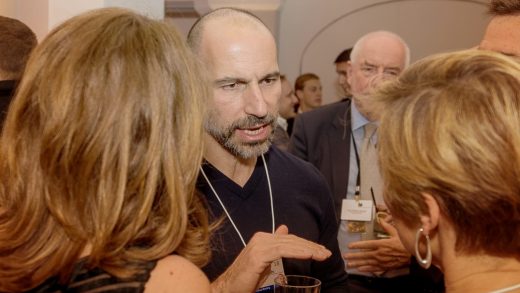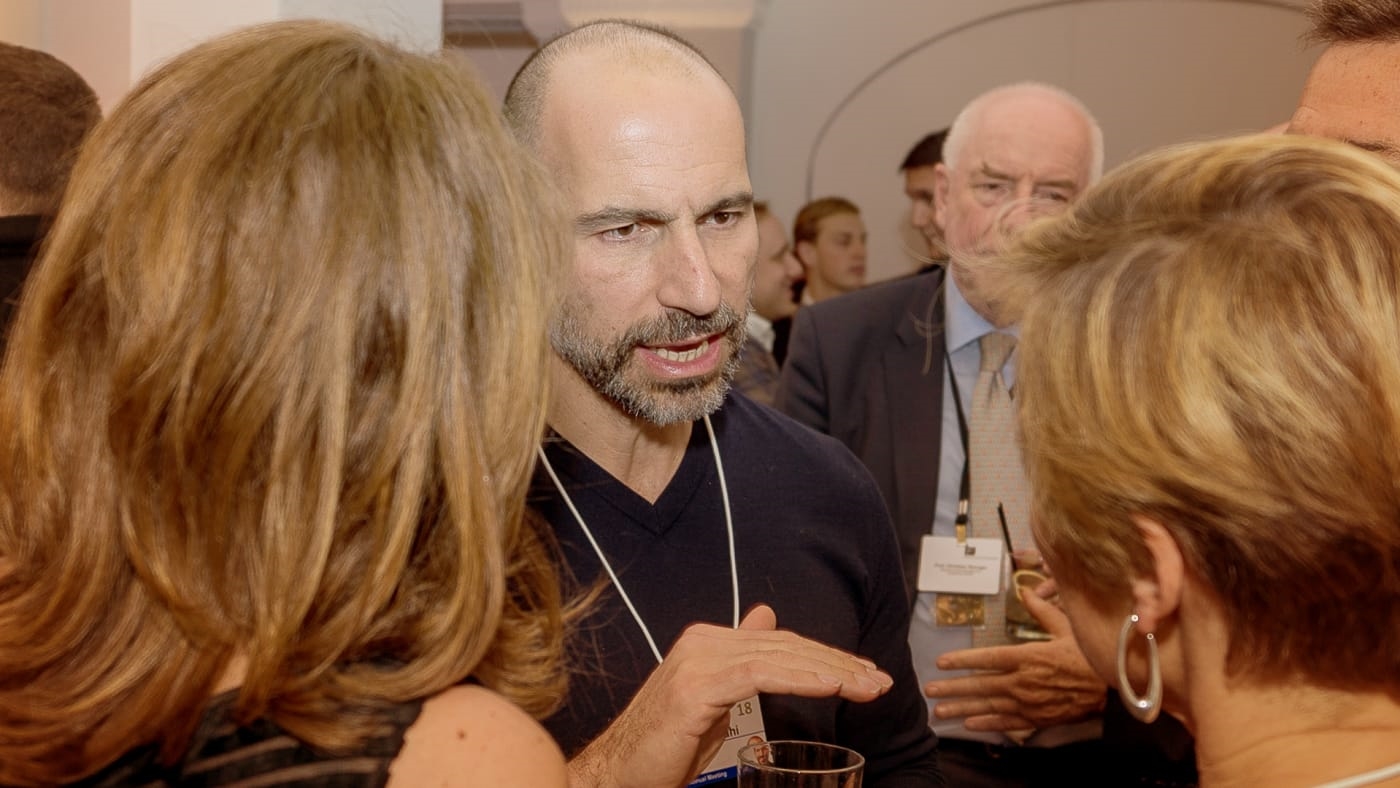Uber’s new mantra is “do the right thing.” Employment lawyers are still waiting
Uber CEO Dara Khosrowshahi has been trying to distance the ride-hailing company from its former bad-boy reputation. On Tuesday morning, Uber pushed out a glossy press release ending its policy of forced arbitration for victims of sexual assault and harassment. It also introduced a new slogan: “We do the right thing, period.”
The dissolution of forced arbitration for those with claims of sexual harassment and assault is an important step in clearing a path for victims to report. Still, this “mantra,” as Uber is calling it, has induced some eye rolls, particularly among people who have long raised concerns over Uber’s questionable labor practices.
“Uber is not ‘doing the right thing’ by continuing to classify its drivers as contractors, particularly in Massachusetts and California, where the law is much stronger in favor of employee protections,” says attorney Shannon Liss-Riordan, who has been involved in several employee misclassification suits with gig economy players.
She’s not the only attorney taking issue with Uber’s announcement. “The company is ending its long-standing policy of mandatory arbitration only for individual claims, but not for class-action lawsuits, knowing full-well that class actions are the only way most employees can afford to wage such a legal battle,” says Seth Lesser, a legal partner at the workers’ rights law firm Klafter Olsen & Lesser LLP.
Uber drivers, and the employment lawyers who represent them, have long fought for full employment status. One of the big legal factors that stands in their way, these lawyers say, is forced arbitration. “While requiring apps to come to the table for arbitration is an important right for drivers, they should not be denied the right to sue the companies in court for wrongdoing on an individual or class basis,” says Moira Muntz, a representative for the New York-based Independent Drivers Guild.
The Promise Of A New Era
Since Khosrowshahi took over the company after the ouster of Travis Kalanick in 2017, he’s instituted several changes in the hopes of rehabilitating its image, not just in the eyes of users, but in the eyes of drivers and regulators, too. Building on a slate of new driver features (including tipping and 24-7 assistance) that predated his arrival, Khosrowshahi has since introduced a redesigned driver app and a promise to work more closely with cities as it expands.
But Uber has not addressed the one request that drivers probably care the most about: better compensation.
Several studies have attempted to quantify just how much drivers earn and whether or not Uber, by choosing to classify its workers as contractors, is evading wage laws. A new report from the Economic Policy Institute shows that accounting for Uber commissions and fees, vehicle expenses, and a “modest” benefits package, drivers overall earn $9.21 per hour. That figure is below the minimum wage in 13 of the metropolitan areas where Uber is available, according to the report. Of course, since Uber drivers are contractors, not employees, minimum wage rules don’t apply to them.
“While we appreciate EPI’s contribution to this important topic of research, the paper makes several questionable claims and assumptions while altogether ignoring the flexibility drivers tell us they value and cannot find in traditional jobs,” an Uber spokesperson wrote via email, highlighting in particular the report’s use of an average national wage, which may be lower than actual earnings for city drivers.
It’s not just minimum wage that drivers miss out on as contractors. Uber drivers must cover the costs of employment tax (as employees, they would only pay half), health insurance, and vehicle maintenance and repair. As contractors, they don’t qualify for unemployment or workers’ compensation, not to mention any kind of paid time off.
Given this laundry list of discrepancies, employment lawyers aren’t exactly buying Uber’s attempt to recast itself as a model of morality. Asked if it would consider dropping mandatory arbitration for drivers, an Uber spokesperson told me the company is always reviewing its policies.
Driving Home The Same Old Argument
Uber has long tried to deflect claims that it should classify workers as employees, saying instead that, as contractors, drivers can enjoy the flexibility to work whenever they want. The company has said in the past that the majority of its drivers supplement their main source of income by working for Uber.
The EPI report corroborates that claim. “There are a large number of people seeking to supplement their regular incomes by working in the gig economy for a short time or as very part-time workers,” it says. But the report also notes that “short-hour” drivers aren’t the only category of workers on the platform. A minority of workers do rely on Uber for full-time work.
There is also evidence that Uber controls worker hours through monetary incentives and psychological manipulation, as highlighted in a New York Times report from last year. “It’s incentivizing them in such a way that they can say it’s the driver’s choice,” says Liss-Riordan.
She also says that it’s a myth that only contractors can have flexible work, noting that remote work and flexible schedules are becoming increasingly popular work policies. “A company can decide that its business model is based on a certain amount of flexibility,” she says.
The question over whether Uber drivers qualify as employees may not be answered soon, but the ability of companies to force workers into arbitration might be. The Supreme Court is expected to rule on a consolidation of three lawsuits that call into question the practice of mandatory arbitration as a way of preventing workers from complaining as a group.
As for Uber, it could wait for the verdict before making any changes to its mandatory arbitration clause—or it could set an example for other gig economy players by removing it wholesale. “The choices that Uber makes are going to be felt by and watched by many other players in this economy,” says Liss-Riordan.
Correction: a previous version of this article misspelled the name of attorney Shannon Liss-Riordan. The story has been updated with a comment from Uber.
(57)



